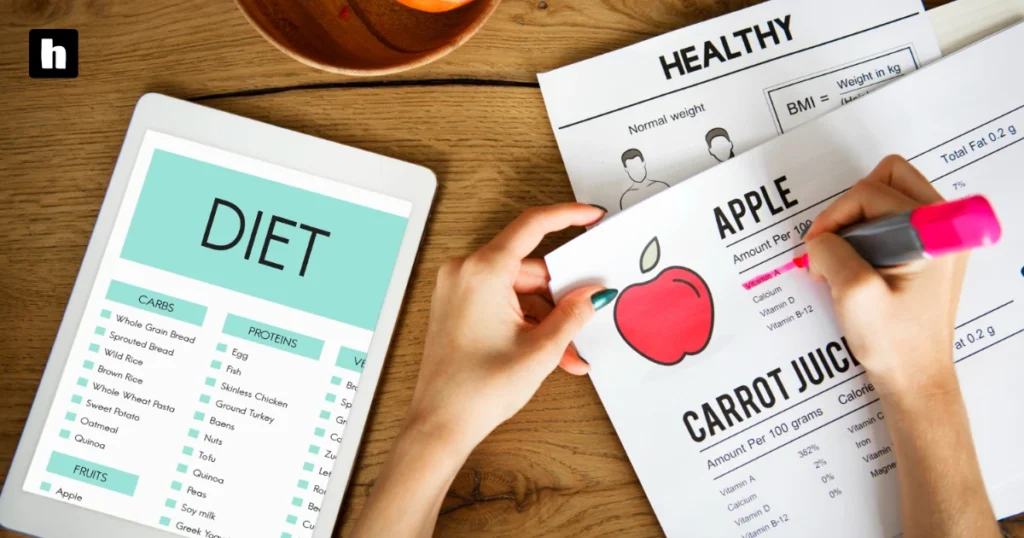
Are you having trouble getting healthier and losing weight? So you’re not the only one. Maintaining a healthy diet and regular physical activity can be difficult for many people, particularly when they don’t see the desired results. But you can take charge of your weight and reach your fitness goals with the aid of an Ozempic meal plan.
What is Ozempic?
Ozempic is a pharmaceutical drug categorized as a receptor agonist for glucagon-like peptide-1 (GLP-1). Semaglutide is its active ingredient. By supporting blood sugar regulation, Ozempic is primarily used to treat type 2 diabetes. However, it has also been found to have additional benefits related to weight management.
How does Ozempic Promote Weight Loss?
Ozempic may be useful in managing and losing weight.
Ozempic’s active ingredient, semaglutide, reduces overeating by slowing down digestion and prolonging feelings of fullness.
Although this can also be accomplished with a balanced diet, semaglutide has two advantages. It slows down digestion and causes the pancreas to release specific hormones.
These hormones interact with the brain to indicate fullness following a meal, which may result in less food being consumed and, eventually, weight loss.
Ozempic Diet Plan
- Lean meats, vegetables, whole grains, nuts, seeds, legumes, low-fat dairy products, and fruits and vegetables are the main components of a healthy Ozempic diet. Only in moderation should processed foods be eaten. Making an effort to include a source of fruits and/or vegetables, carbohydrates, and protein at each meal will help you maintain meal balance.
- Protein is particularly crucial when taking Ozempic; it ought to be the main course at all meals and snacks. Each person will lose weight on Ozempic at a different rate, but some report losing weight quickly after starting the drug. Eating a diet high in high-quality protein—found mostly in meat, seafood, eggs, dairy products, and soy—is essential to preventing muscle loss.
- You risk losing important lean body mass while on Ozempic if you don’t consume enough calories and/or protein. Long-term muscle loss can have a detrimental effect on your metabolic health, which can also make it harder to maintain your weight loss.
- There are presently no established guidelines for protein consumption while taking Ozempic; however, it is advised to fulfill the minimum daily requirements of 0.8 – 1 grams per kilogram of body weight.
Here’s a sample 1,800-calorie Ozempic diet plan:
Breakfast (450 Calories):
- Scrambled Eggs with Vegetables: 2 whole eggs scrambled with bell peppers, onions, and spinach, cooked with a touch of olive oil.
- Whole-Grain English Muffin: 1 toasted muffin topped with a thin layer of avocado.
- Mixed Berries: 1 cup of mixed berries (strawberries, blueberries, raspberries).
- Black Coffee: 1 cup of black coffee or herbal tea.
Mid-Morning Snack (200 Calories):
- Cottage Cheese and Pineapple: 1/2 cup of low-fat cottage cheese with a 1/2 cup of fresh pineapple chunks.
Lunch (500 Calories):
- Turkey and Avocado Wrap: Whole-grain wrap with 3 oz of turkey breast, sliced avocado, lettuce, and tomato.
- Quinoa Salad: 1 cup of quinoa salad with cherry tomatoes, cucumber, feta cheese, and a drizzle of balsamic vinaigrette.
- Water with Lemon: 1 cup of water with a squeeze of fresh lemon.
Afternoon Snack (150 Calories):
- Greek Yogurt Parfait: 1 cup of non-fat Greek yogurt layered with sliced strawberries and a sprinkle of granola.
Dinner (450 Calories):
- Baked Cod: 4 oz of cod fillet baked with lemon and herbs.
- Roasted Sweet Potatoes: 1 medium sweet potato, cubed and roasted with a dash of olive oil.
- Steamed Asparagus: 1 cup of steamed asparagus spears.
Evening Snack (150 Calories):
- Handful of Almonds: About 15 almonds for a satisfying crunch and healthy fats.
Before Bed (50 Calories):
- Herbal Tea: 1 cup of caffeine-free herbal tea for relaxation.
This Ozempic diet plan continues to emphasize lean proteins, whole grains, and a variety of colorful fruits and vegetables. Remember to adapt the plan based on your individual preferences and dietary needs, and consult with healthcare professionals.
What foods are appropriate to eat while taking Ozempic?
While taking Ozempic (semaglutide), it’s advisable to focus on a balanced and nutritious diet. Here’s a list of foods that are generally appropriate to include in your diet while using Ozempic:
Lean Proteins
- beef or pork cuts; poultry; turkey; fish (tuna, salmon).
- Legumes (lentils and beans), tofu, tempeh, and low-fat dairy products.
Non-Starchy Vegetables
- broccoli, cauliflower, bell peppers, zucchini, asparagus, Brussels sprouts, and leafy greens (spinach, kale, and lettuce).
Whole Grains
Healthy Fats
- Olive oil, chia, flaxseed, walnut, and almond nuts, and avocado.
Fruits
- Oranges, melons, pears, apples, and berries (strawberries, blueberries, and raspberries). Limit your fruit intake.
Low-Fat Dairy
- Moderate consumption of cheese, Greek yogurt, and low-fat milk.
Herbs and Spices
- Instead of adding too much salt or sugar, use herbs and spices to improve flavor.
Water and Hydrating Beverages
- Drink plenty of water and herbal or infused teas to stay hydrated. Cut back on sugar-filled drinks.
Fish rich in omega-3 fatty acids
- Add omega-3-rich fatty fish, such as mackerel and salmon.
Eggs
- Eggs can be a part of a balanced diet and are a good source of protein.
Moderate Amounts of Whole Fruits
- Fruits are healthy, but because they contain natural sugars, it’s best to eat them in moderation.
Vegetarian or vegan protein sources
- For those on a vegetarian or vegan diet, tofu, legumes, and plant-based proteins are good choices.
Portion-Controlled Meals
- Utilize Ozempic’s effects on appetite control to your advantage by practicing portion control to prevent overeating.
Minimize processed foods and sugars
- Reduce the number of processed foods, sugary snacks, and drinks you consume.
Read also:
- 7 Benefits Of Chia Seeds With Water And Lemon 2024
- Is Honey Bunches Of Oats Gluten Free?
- Sprouted Oats in Your Daily Routine: Nutrient-Rich Delight
- 5 Benefits of Chia Pudding You Need to Know
The bottom line
By combining Ozempic with a meticulously crafted diet plan, you can optimize your weight loss journey and improve your overall well-being. It is essential to prioritize whole, nutrient-dense foods and maintain open communication with your healthcare professional to ensure a safe and effective approach to managing your weight. Keep in mind that sustainable changes lead to long-lasting results, and with perseverance, you can achieve a nourishing transformation.
Frequently Asked Questions:
Q1. What foods should you avoid while taking Ozempic?
A1: Avoid processed foods, sugary snacks, fried items, excessive alcohol, large high-calorie meals, unhealthy carbohydrates, and processed meats to optimize its effectiveness and support overall health.
Q2. What happens if you eat sugar while taking Ozempic?
A2: Eating sugar while on Ozempic may lead to blood sugar fluctuations, affecting its effectiveness. It’s important to maintain a balanced diet.


